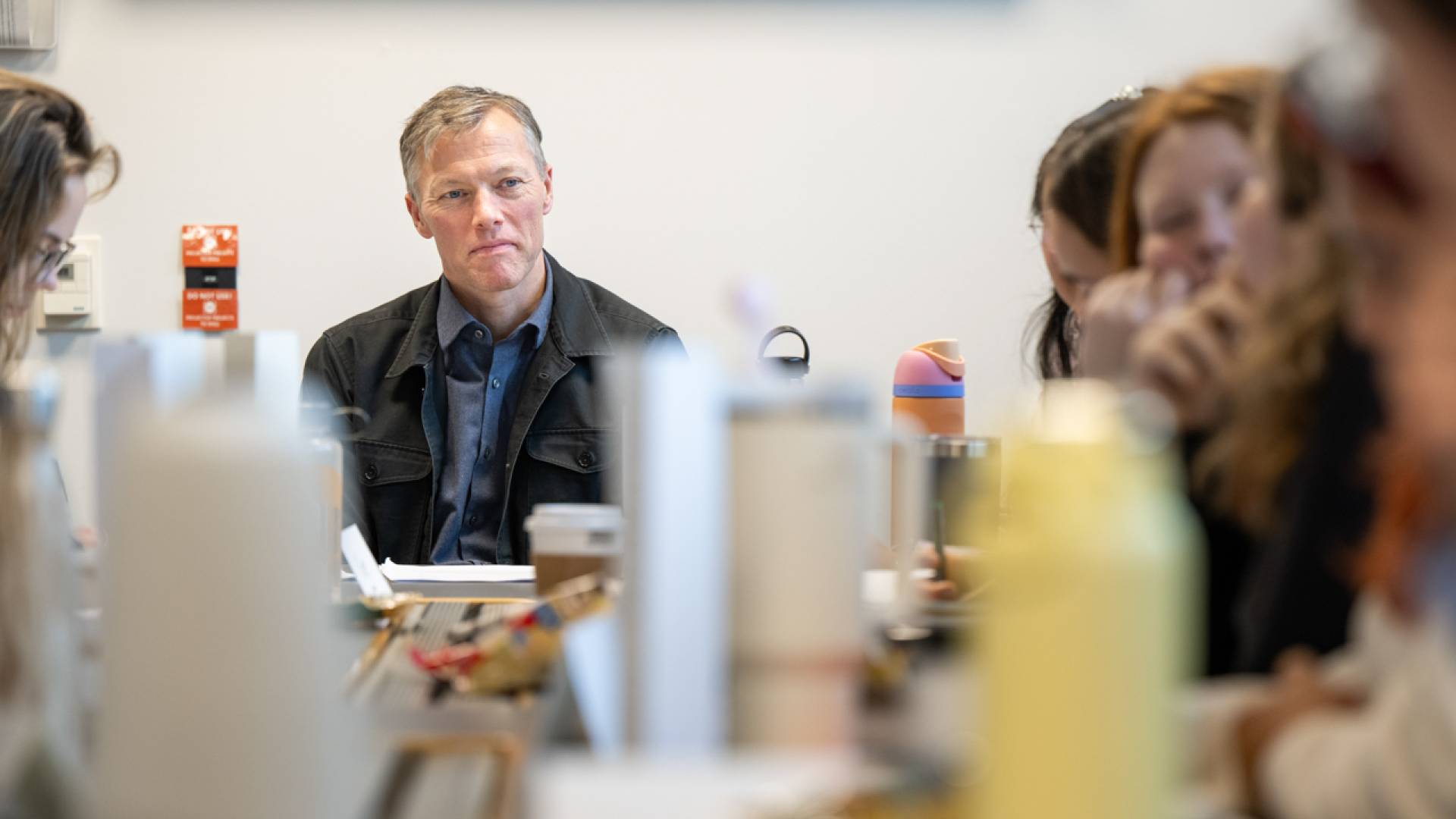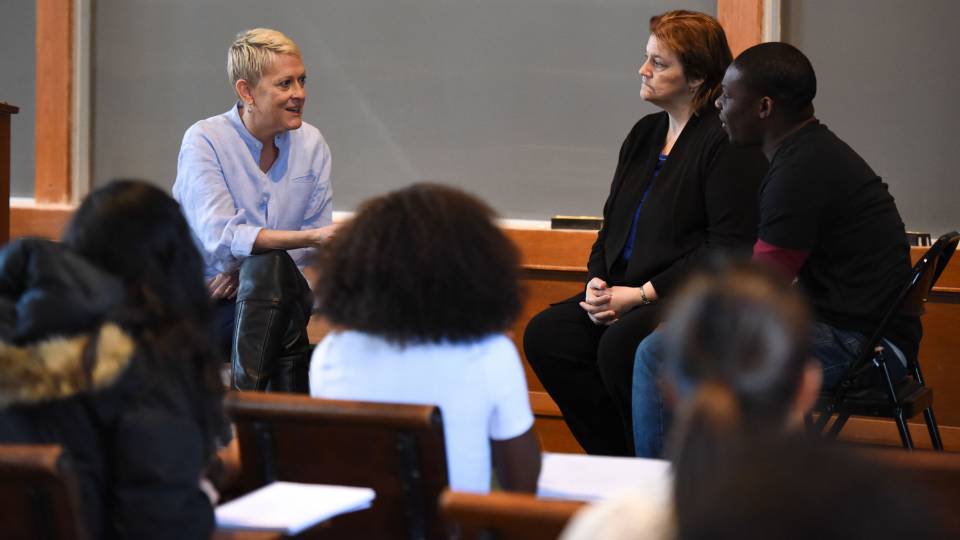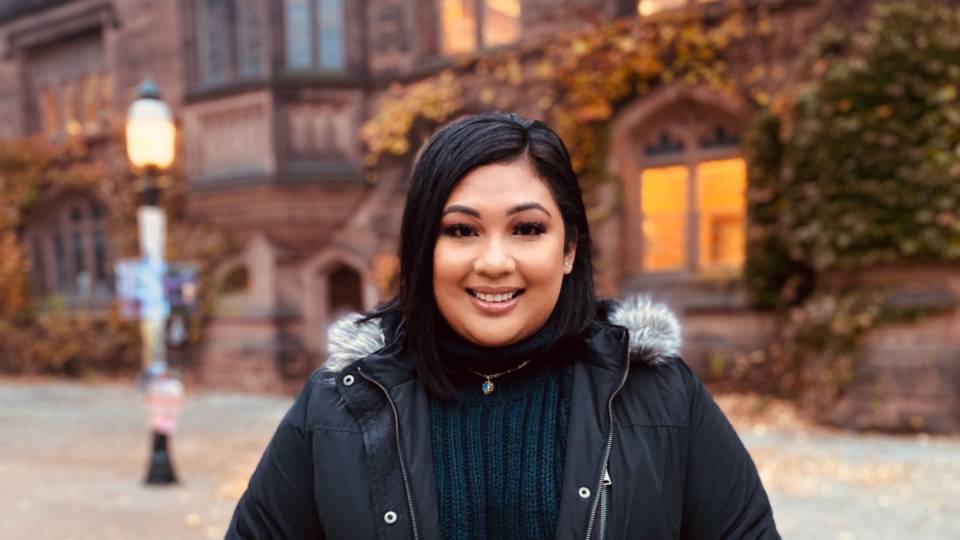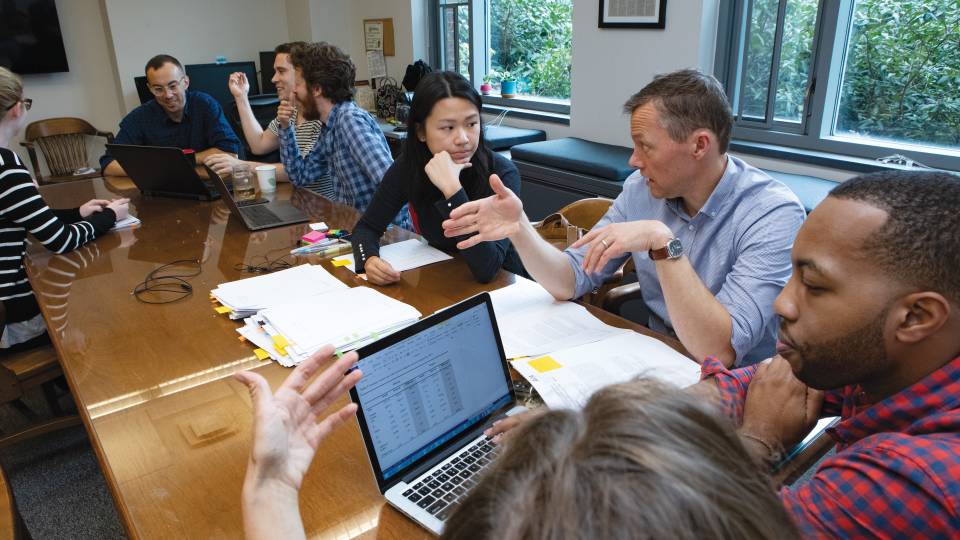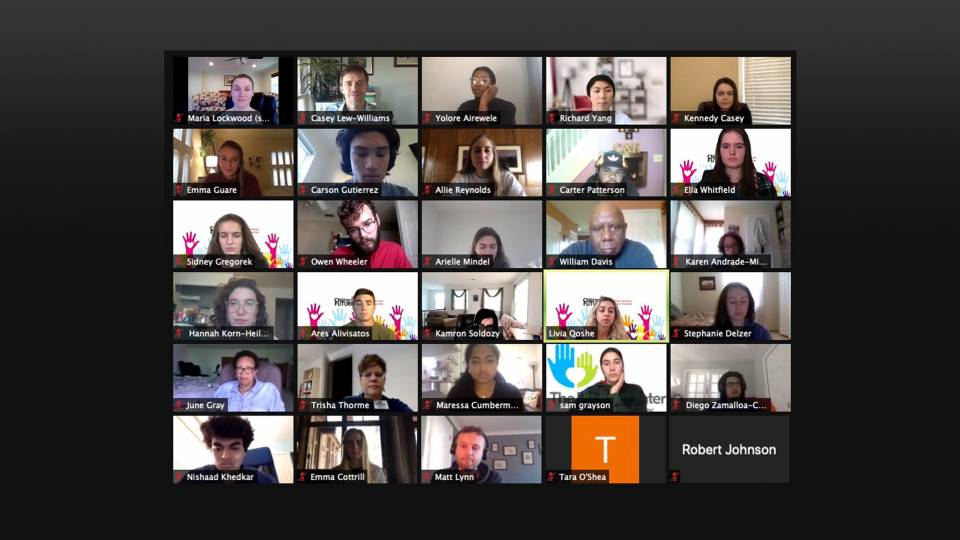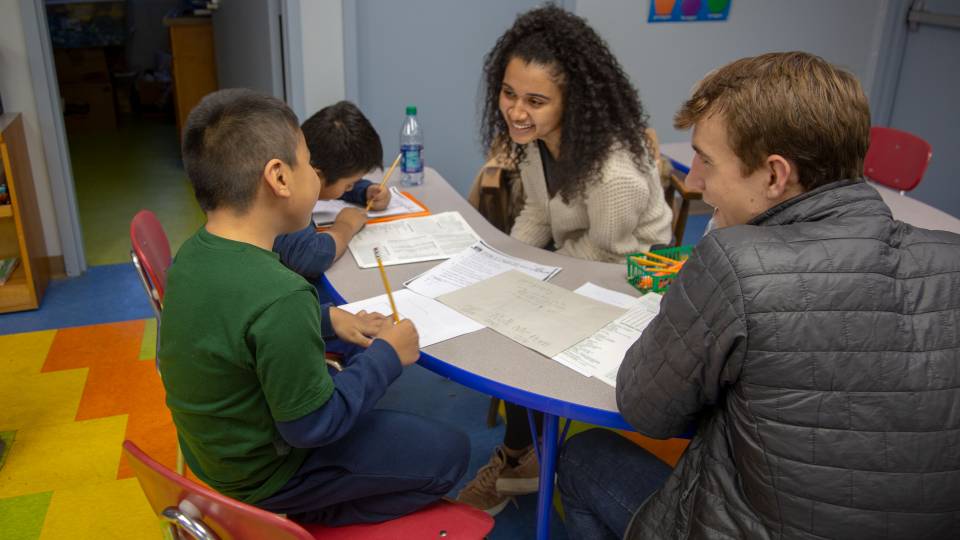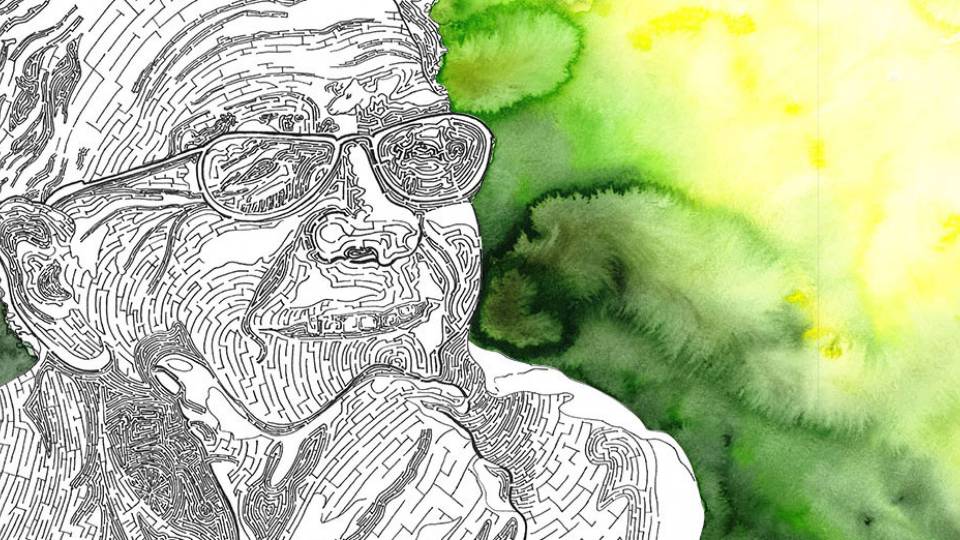Matthew Desmond, author of "Evicted" and "Poverty, by America," teaches an undergraduate seminar in which students tackle questions about American poverty head-on — and field-test real solutions with community partner organizations.
"Why is there so much poverty in America, and what can we do about it?"
Last spring, Matthew Desmond, author of the Pulitzer Prize-winning "Evicted: Poverty and Profit in the American City," retooled a large lecture course he had been teaching, to coincide with the publication of his latest book, "Poverty, by America." The new seminar was capped at 15 students. Desmond’s goal: Have students tackle questions about American poverty head-on from multiple angles — and field-test real solutions with community partner organizations. He's teaching it again this semester.
The class, by application only, attracts students from STEM to the social sciences to the humanities. "I'm looking for real serious engagement in the issue, but from a lot of different perspectives," said Desmond, the Maurice P. During Professor of Sociology and principal investigator of The Eviction Lab.
"Poverty, by America" — the course — is one of 90 classes across academic disciplines offered this academic year through the Program for Community-Engaged Scholarship (ProCES), which is celebrating its 25th anniversary this year. ProCES incorporates community priorities into academic courses and coursework, including fieldwork. Desmond said ProCES provides essential support by helping connect his students with organizations for their fieldwork and final projects.
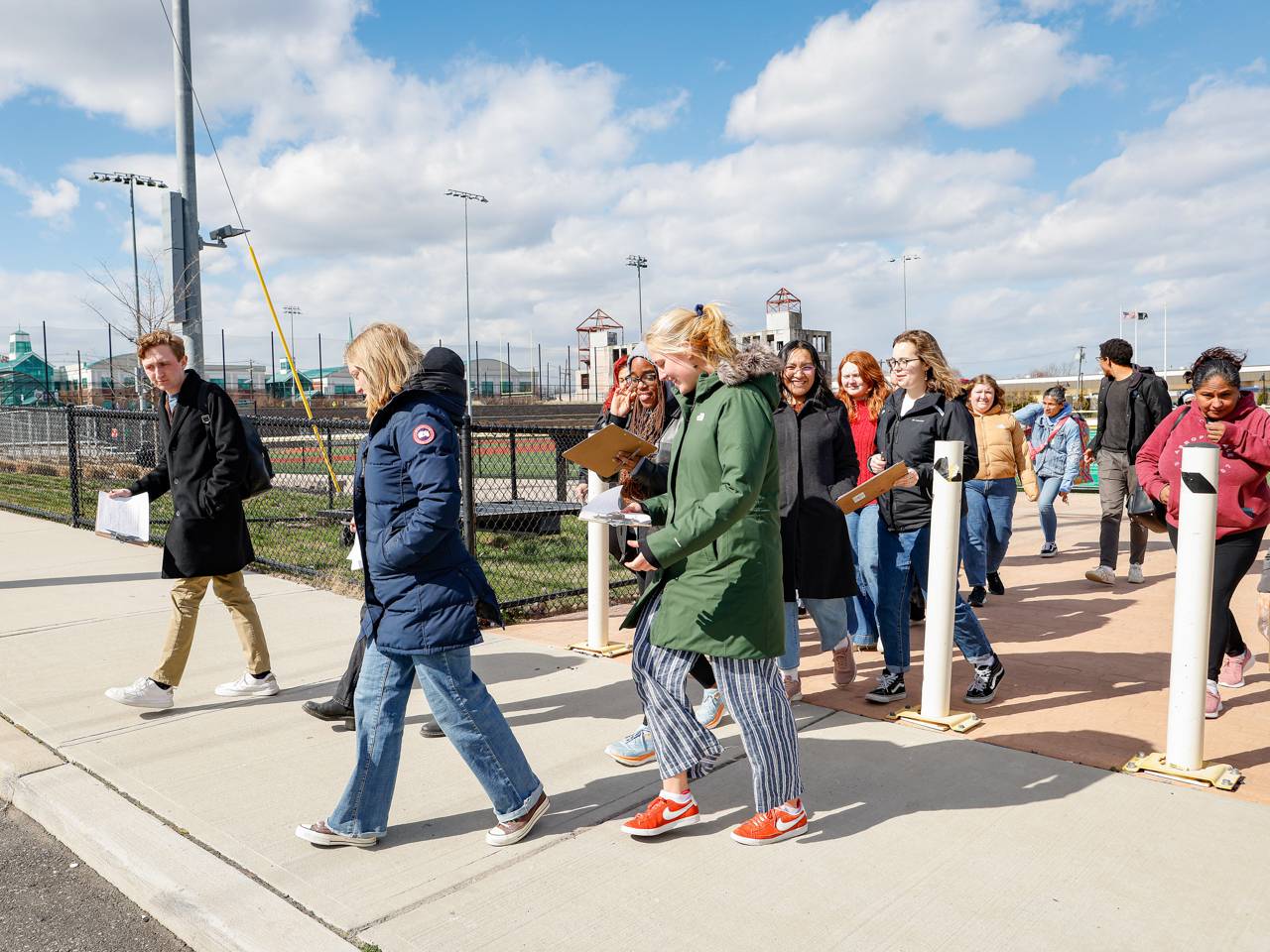
In Perth Amboy, students and members of Make the Road to New Jersey, a nonprofit focused on immigrant and working-class communities, set out to share information with residents.
"America has much higher rates of poverty, especially child poverty, than other advanced democracies," Desmond said. "Thirty-eight million Americans live below the official poverty line, and one in three of us live in households making $55,000 or less.”
The course helps students learn to effect real change. The first step, Desmond said, is challenging them to think about the concept of "expertise." "The natural response is academia, government studies, economics, history, but we want to understand the lived experience, including from folks who have experienced poverty or are experiencing it."
A wide range of viewpoints is key. Visitors to Desmond’s classes have included people who were formerly incarcerated, those currently struggling with homelessness, law enforcement officers, community organizers working on immigrant rights, fair wages and affordable housing, and both liberal and conservative writers. Senator Cory Booker and U.S. Rep. Bonnie Watson Coleman have both been guests in Desmond’s courses, and this semester, New York Times investigative reporter Andrea Elliott, a Ferris Professor of Journalism at Princeton and the author of the Pulitzer-Prize winning book “Invisible Child: Poverty, Survival and Hope in an American City,” led a class session and brought in the book’s subject, Dasani Coates, via Zoom.
In addition to Desmond’s own work, readings include books and articles by other Princeton scholars, including Keeanga-Yamahtta Taylor, author of "Race for Profit: How Banks and the Real Estate Industry Undermined Black Homeownership"; sociologists Kathryn Edin and Patrick Sharkey; Nobel Prize-winning economist Angus Deaton; and others studying poverty, policy-making and related issues.
Two "fieldnotes" assignments require students to conduct interviews and observe or participate in settings like eviction court, minimum-wage jobsites and zoning board meetings.
Groups made up of five students are assigned to one of three community partner organizations for a semester-long project: "The organizations issue the challenge, and students are tasked with delivering something useful and rigorous by the end of the semester," Desmond said.
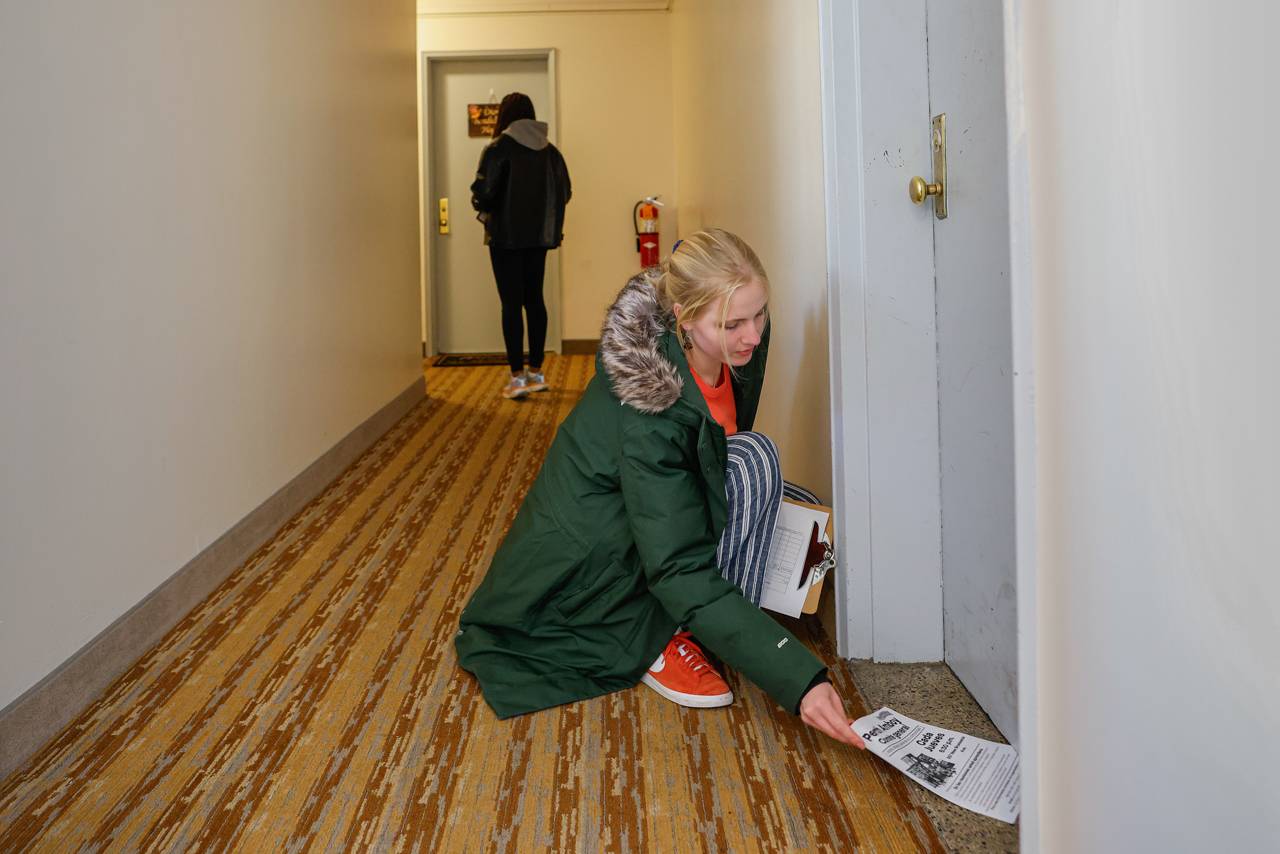
Ada Frederick ’27 (foreground) and Myrah Charles ’26 canvas in a Perth Amboy apartment building to share a flyer that explains a law limiting annual rent increases, part of a housing campaign by Make the Road New Jersey.
Last year, community partner Fair Share Housing, a New Jersey nonprofit and national leader on issues of discrimination in housing, asked for help figuring out how many homes were being lost either to demolition or to gentrification in order to give the governor better data for investments to address the state’s affordable housing crisis.
"Fair Share Housing took the data that the students created to the governor's office. And this year they had this incredible victory with affordable housing legislation that Gov. Murphy signed," Desmond said. "That's real-world impact."
On a March field trip, the class met with staffers at Make the Road New Jersey (MRNJ) — a community-organizing nonprofit focused on immigrant and working-class communities in Perth Amboy, Passaic and Elizabeth. The students heard from community members who'd benefited from a temporary unemployment program set up by the state during the pandemic, which is a model for a new MRNJ campaign.
Students also canvassed in a Perth Amboy neighborhood to share information with residents, including an MRNJ flyer that explained a law limiting annual rent increases. Clariza Macaspac, a senior who served for seven years in the Navy and transferred to Princeton from San Jose City College, said some "thought the percentage was higher than it actually was. I was glad that I was able to share something important.”
Desmond calls the approach "ground truthing." "You can go to Firestone Library and learn a lot, but you've got to take it back to folks that are on the front lines and say, 'This is what we learned, does that sound right?'”
A 'foundation of trust' for tough conversations
Candor, disagreement and hearing opposing views are integral to the course, Desmond said, so a supportive environment for a free exchange of ideas is crucial. No laptops are allowed. The class abides by the Chatham House Rule: Students "are free to share information and conversation from our discussions outside of class and on social media, but we agree not to attribute particular comments." This helps students feel comfortable challenging each other, specifically for the sake of a more nuanced discussion, Desmond said.
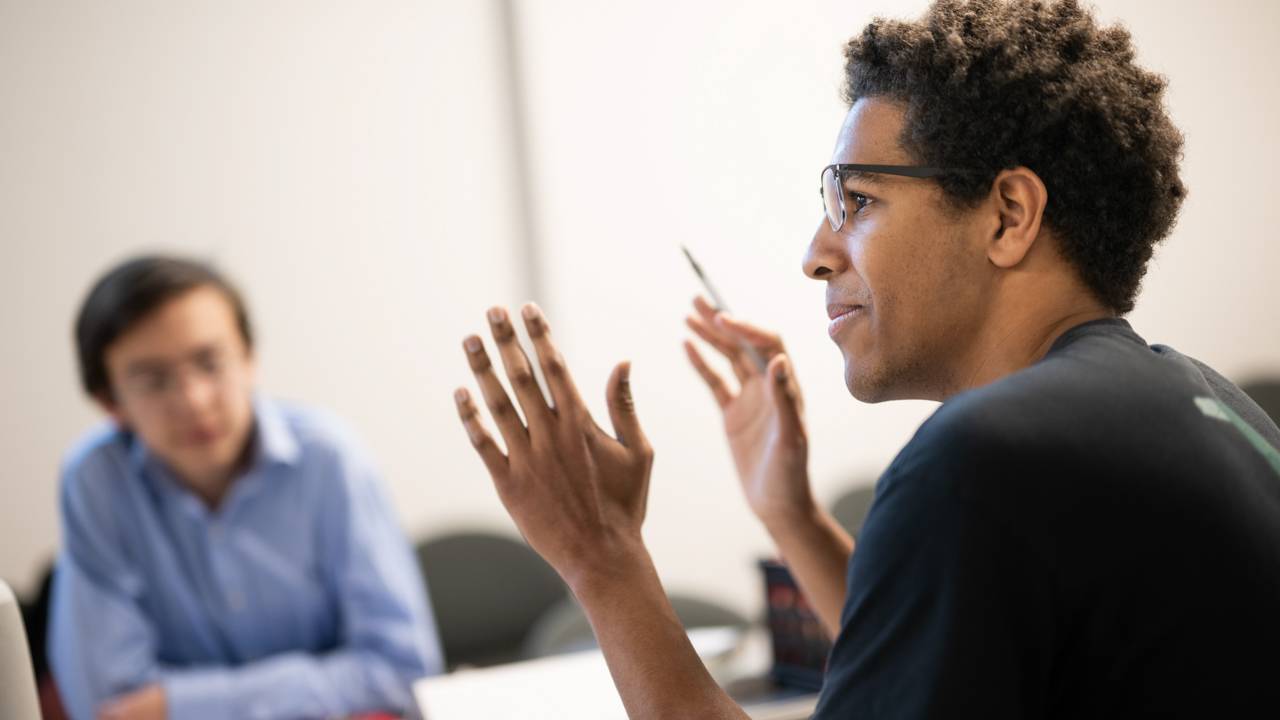
Charles Mshomba ’24 (foreground), a politics major, offers a comment during a class discussion, as Will Aepli ’26, who is considering majoring in ecology and evolutionary biology, listens. "I'm looking for real serious engagement in the issue, but from a lot of different perspectives," said Desmond.
Desmond runs the discussions. If students want to raise a point, they turn a table tent card with their name on it to face forward. "But you can skip the queue with a two-finger intervention," he said, a technique borrowed from the Brookings Institution. Students stick out their first and second fingers together "when you just have to say something ... often when it gets really energetic, there'll be a lot of two fingers!" Desmond said.
Senior Casey Beidel, a pre-law sociology major who hopes to work on civil rights issues, particularly those related to LGBTQ+ equality, said he chose to take this course because he'd read excerpts from "Evicted" in other classes and didn't want to leave Princeton "without learning from one of the country's foremost academics studying poverty and the systems that perpetuate it."
The course has challenged his outlook on poverty in the United States. "There are some concepts that I'd internalized from headlines and common rhetoric that I hadn't realized were grounded in fallacies that I can now combat with research and data," he said.
'This is a class that brings hope'
"Students are confronted with really big issues like inequality, the climate crisis, and those issues can feel incredibly daunting and sometimes hopeless," Desmond said. “But we have a rule in class that we can't end there, on a hopeless note. This is a class that brings hope."
Macaspac, who is majoring in Spanish, has volunteered for the Latin American Legal Defense and Education Fund and the Eastern Service Workers Association, both in Trenton, and wanted to learn how she could do more to make a difference. "My classmates' enthusiasm and passion for our shared goal give me hope for the future."
At the last class, Desmond encourages his students to take what they've learned out into the world: "If you go into the arts or the sciences, medicine or law, we all have a role to play here. I'd like students to leave with a commitment to poverty abolitionism, no matter who they are and no matter what they go into. For me, that is a real win."
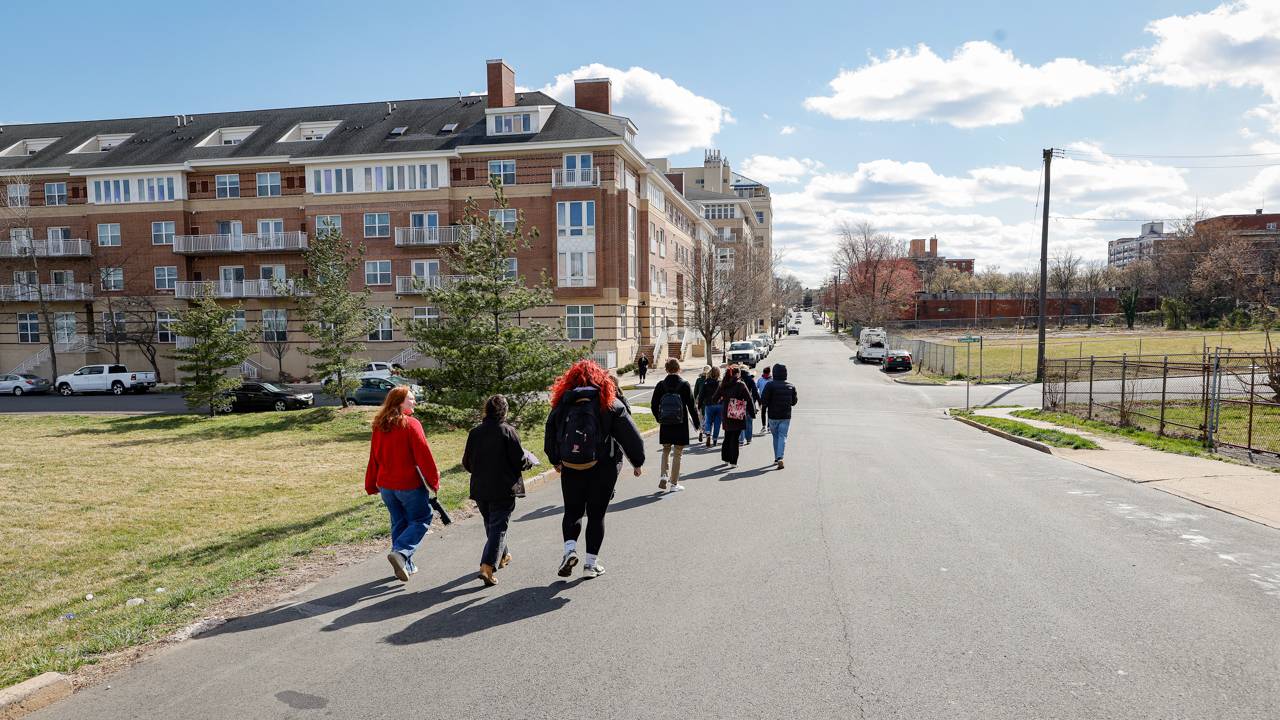
Desmond calls the course's fieldwork assignments “ground truthing.” “You can go to Firestone Library and learn a lot, but you’ve got to take it back to folks that are on the front lines and say, ‘This is what we learned, does that sound right?’"
